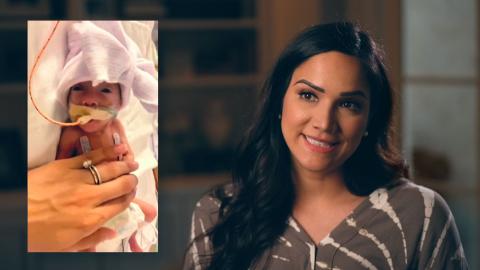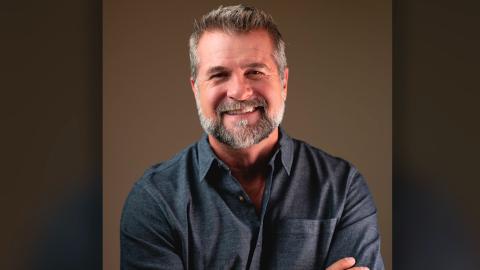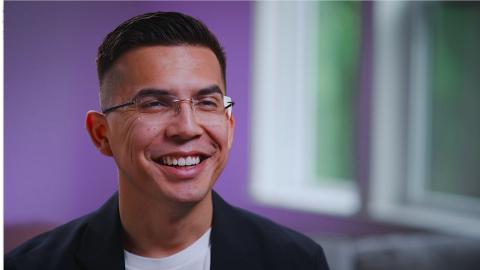The Birds and the Bees at Age Three?
“The birds and the bees,” “the talk,” or whatever you call it – parents dread it. Talking to your kids about sex is not a comfortable subject for most parents, but it’s vitally important, says parenting expert Jim Burns. Kids that grow up in today’s sex-saturated culture are bombarded with mixed messages about sex. Since not all of this information is accurate, or biblically based, they need to get the facts from a reliable source. That’s where parents come in.
To help parents approach this topic with their kids, Burns has written Teaching Your Children Healthy Sexuality: A Biblical Approach to Prepare Them for Life. He offers advice on how and when to talk to your kids, and he provides answers to common questions that kids ask.
The focus, he said, should be on helping your children develop a “theology of healthy sexuality.” At its core, this means fostering an understanding that God created sex and, within the bonds of marriage, He called it “good.” Developing a healthy sexuality also means helping kids understand how to live a life of sexual integrity, something that stretches beyond just the act of physical intercourse and will hopefully be a mindset they continue to maintain even as adults.
He offers these tips for parents.
Conversations should be ongoing and age appropriate.
Research has shown that having “the talk” one time with your kids doesn’t cut it, Burns said. Instead, parents should have an ongoing dialogue with their kids about age appropriate sexual issues starting as early as age 3.
“From 3 years old to 5 years old,” Burns said, “it’s about how God made your body and how God made Mommy different than Daddy. You basically give them what is developmentally very simple. You start with that.”
From ages 6 to 9, he said, kids are much more curious about stuff and tend to ask a lot of questions.
“The problem is sometimes moms and dads give them too much information,” he said. “If they are 7 years old, and they say, ‘Mommy what is sex?’ They are not looking for the huge details. They are just looking for some basics. Then there are some things that you talk about like what’s an appropriate touch and what’s not an appropriate touch.”
By ages 10 to 14, he said, it is time to tell them most of the details. “You have to talk to them about puberty before they reach puberty,” Burns said. “You have to talk to them about sex drive before they enter into that. You should keep it a dialogue as opposed to a monologue. Then after (age) 14, you almost talk to them like an adult.”
Focus on purity, not just abstinence.
Burns has developed a book for teens titled, The Purity Code. The book helps teens understand that purity is a lifestyle, not just a decision to avoid sexual intercourse until they are married. Abstinence pledges can be effective, Burns said, but he would like to see kids take it a step farther.
“They commit to sexual abstinence until marriage,” he said. “Well that means sexual intercourse. Then kids get legalistic and they do everything but. Even Christian kids think, ‘Well, I signed a pledge so I’m not going to have sex, but I’ll have oral sex.’”
In a world full of pornography and other sexual temptations, Burns said, the focus should be on sexual purity rather than just avoiding a physical act. This means addressing the ways they dress, the movies and television shows they watch, and the ways they relate to the opposite sex.
“They have to be able to learn to honor God with their bodies, renew their minds, turn their eyes, as well as guard their hearts,” he said. “Our job is to teach them much more.”
Tie sexual discussions to milestones in their lives.
Reaching puberty, turning 16, going to prom, all of these are milestones that can be celebrated, Burns said. With each one, parents can tie in a discussion about sexuality.
For example, Burns said, his daughters (he has three) were each taken out by his wife for a one-night trip as they were nearing 12 years old. They were treated to a shopping trip and fun food, he said, then his wife went over basic human anatomy with them and explained how their bodies would change with puberty.
“They kind of came back a little different,” he said. “That was a milestone for them, and the girls looked forward to it.”
The girls celebrated another milestone when they turned 16 and were allowed to begin dating. Before they had their first date, Burns said, he took them out for dinner and bought them a nice outfit. As part of their trip, he discussed sexual purity with them as well as how young men should treat them on dates.
“It wasn’t that it was the first time they had heard it,” he said, “but it was when they could get the ring. We gave them the chance to do “The Purity Code” and then we gave them a ring, so that was a milestone.”
Don’t neglect to discuss other topics that relate.
Many parents focus on discussing sex but they don’t realize that other issues, like the use of drugs and alcohol, are just as important.
“The majority of people have been drinking when they have their first sexual experience,” Burns said. “It loosens up the morals, so you have to talk about that part of it. You have to think through the party thing.”
Modesty is also a significant issue that relates to sexuality. Raising three girls, Burns said, he was very aware that he needed to explain to them how the ways they dressed affected the boys around them. They didn’t realize that the “sexy” clothes they wanted to wear were sending a strong message. They thought the clothes were simply cute and fashionable.
“It’s my responsibility to teach them that. I have to teach them that the male sex drive and female sex drive is going to be different.”
For more tips on talking to your kids about sex, as well as answers to common questions kids ask, check out Burn’s book, Teaching Your Children Healthy Sexuality.
Want to help your child live a life of purity? Give them a copy of The Purity Code.




